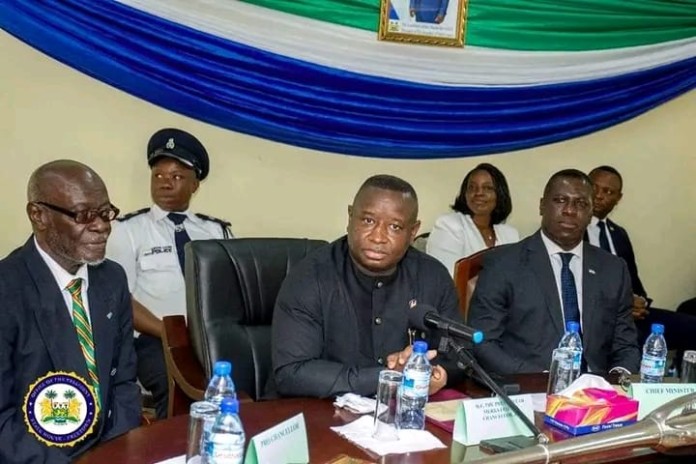By Brima Sannoh
It is usually stated that the lifeblood of any viable organization is finance. By extension for any functioning Government to be at a vantage position to positively transform the socio-economic landscape of any country the funds to implement development plans should either be readily available or could be mobilized/generated as well as judiciously and prudently utilized for prioritized purposes that will yield fruitful dividends.
In our situation, Ministries, Departments and Agencies (MDAs) have most times complained that they have not been able to accomplish outlined tasks simply because of inadequate and untimely release of funds by the Ministry of Finance to successfully implement those set programs as encapsulated in the Government’s development agenda.
This cry has been going on now for quite a considerable period of time but it is understandable that in real life situations there can never be enough within the context of limited resources amidst unlimited as well as numerous demands competing for those funds.
Faced with such a position, it is only incumbent on the MDAs to be very methodical in how they utilize funds which must be properly accounted for at the end of the day. There could be no gainsaying to assert that certain MDAs have used limited or untimely release of resources as a cover up or an excuse to make up for inadequacies, incompetence or lack of commitment in ensuring that things are done appropriately to fulfill benchmarks and give back value for the taxpayers money.
Without embellishing the truth, there have been instances where some of these MDAs have fallen far below expectations when in actual fact they should have done far much better within a particular fiscal year.
What, however, we cannot deny at this stage is the fact that within the public sector there is still this big problem of getting public officials to properly account for funds allocated to them failing to do so either through negligence or deliberately in a bid not to leave trails behind.
Reports from the Auditor General’s Office have revealed this abnormally as one of the issues that must be well addressed if we are to rapidly make more socio-economic inroads.
As a matter of following best practice the Ministry of Finance prior to the commencement of any new fiscal year facilitates budget hearings where officials from Ministries, Departments and Agencies are expected to make presentations of activities they would like to undertake or continue in the incoming year costing them accordingly.
Already this event has taken place. It was a process coordinated by the Finance Ministry during which Government officials submitted their budgetary plans justifying why in the first place they are requesting the funds and specifying how those funds will be utilized etc. In as much as public officials in MDAs, who are responsible to roll out those plans were given the requisite training how such budgetary plans should be prepared, most came up with performance-based plans instead of grandiose project proposals which are not in the least feasible to be accomplished or will end up becoming white elephants.
At this stage it is expected that Parliament should be in a better stead to also properly peruse those budgetary plans and ensure that they are realistically feasible to fit within our economic agenda with the avowed potentials of reducing poverty.
Parliamentarians must be ready to question public officials why is it that they were not able to carry out targeted tasks during the past fiscal year and why certain funds utilized were not tangibly reflective on the ground in terms of previous activities mapped out. Convincing explanations must be sought from those concerned.
Recognizing the fact that MDAs form a significant cog in the engine of socio-economic transformation, it is important that the Government puts premium on resource mobilization to avail them (MDAs) the required stipulated and Parliamentary approved budgetary allocations needed for them to perform effectively and efficiently.
In the direction of resource mobilization, indeed the National Revenue Authority (NRA) has been doing tremendously well even in these difficult periods of economic contraction. However, there is still room for much improvement. Other income-generating entities must be closely monitored to ensure that they perform better. Both the Anti-Corruption Commission (ACC) and the National Public Procurement Authority (NPPA) should change to high gear to make sure that leakages of public funds are seriously dealt with to get value for money.
The ACC must robustly continue their systems and review exercises and the NPPA trainings in best practices in terms of adhering to good procurement procedures.
If these are properly cascaded then it is highly likely that not only corruption will be drastically minimized but leakages will also be tackled in the good interest of national development.
I enjoin all who take part in the budget hearings to be as realistic as possible, look at our current economic situation so that earmarked or proposed activity plans and interventions will succeed in making positive turnarounds in our development aspirations.




